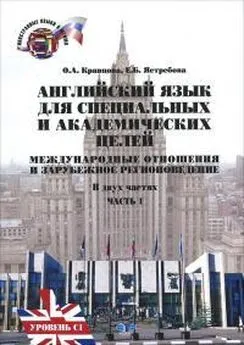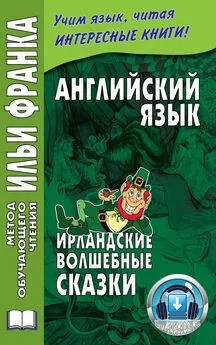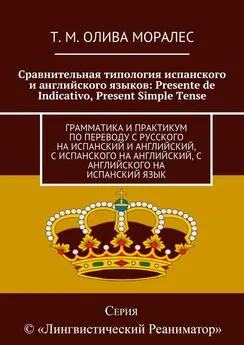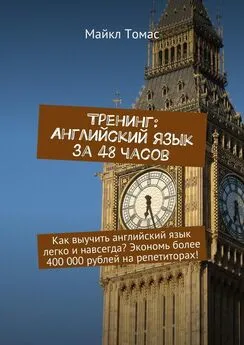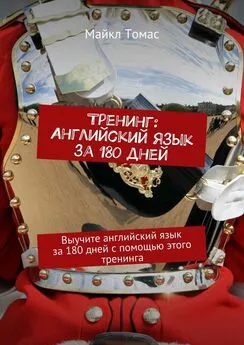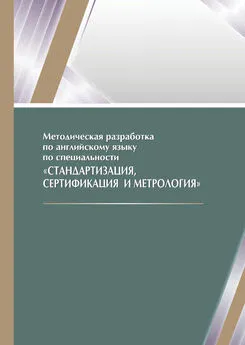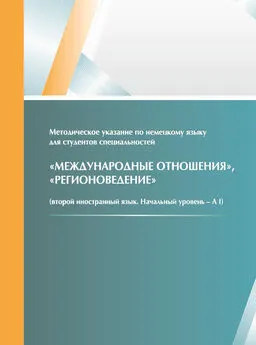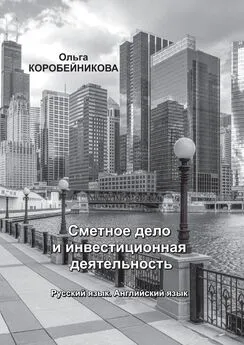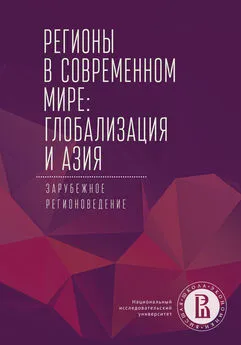Ольга Кравцова - Английский язык для специальных и академических целей: Международные отношения и зарубежное регионоведение. Часть 1
- Название:Английский язык для специальных и академических целей: Международные отношения и зарубежное регионоведение. Часть 1
- Автор:
- Жанр:
- Издательство:МГИМО-Университет
- Год:2015
- ISBN:978-5-9228-1210-8
- Рейтинг:
- Избранное:Добавить в избранное
-
Отзывы:
-
Ваша оценка:
Ольга Кравцова - Английский язык для специальных и академических целей: Международные отношения и зарубежное регионоведение. Часть 1 краткое содержание
Адресовано студентам четвертого курса факультетов и отделений международных отношений и зарубежного регионоведения.
Английский язык для специальных и академических целей: Международные отношения и зарубежное регионоведение. Часть 1 - читать онлайн бесплатно полную версию (весь текст целиком)
Интервал:
Закладка:
12. You are always referring to yourself as a patriot. I want you to stop doing it. WISH I ___________________________________________ as a patriot.
13. Health Minister said today he didn't intend to resign. INTENTION
Health Minister said today he __________________________________________.
14. I'm certain he isn't responsible for the error; he looks too experienced. CANNOT He _____________________________for the error; he looks too experienced.
Unit III. EU at the Crossroads
EAP CORNER
Skim the introduction to the article and find sentences which contain answers to the questions:
1. When and why did Great Britain find itself in the European Union?
2. Why does it appear to want out twenty years later?
Unit III. EU at the Crossroads
3. What are Britain's options outside the EU?
Do you think the answers sum up the main idea of the introduction or of the whole article?
Now look through the rest of the text (‘Almost by accident') to find out more:
1. What can start the process of Great Britain leaving the EU?
2. How many different situations of its exit are analysed?
3. What is the position of the three British leading parties on the EU membership?
4. What makes the outcome of the referendum uncertain?
Which of the words helped you to do it quickly and why?
Trigger, referendum, manifesto, scenario, pressure, Labour, trade unions, Tory, UKIP, poll, Eurosceptic, vote, unpredictable, single market
Did you find the answers at the beginning of the paragraphs? At the end? In the middle?

Now skim the rest of the Article ‘Making the Break' in the Reader and decide what message the author is trying to get across to his readers. What do you anticipate?
1. Britain is far better off in the EU.
2. The ‘marriage contract' between Britain and the EU needs reconsidering,
3. Britain's exit from the EU is fraught with serious consequences.
MAKING THE BREAK (1) http://www.economist.com/news/briefing/21567914-how-britain-could-fall-out-european-union-and-what-it-would-mean-making-break
How Britain could fall out of the European Union, and what it would mean Dec 8th 2012 | From the print edition
BRITAIN has never been too keen on tying the knot with Europe. It sat aside in the 1950s as Germany, France, Italy and the Benelux countries forged a single market in coal and steel, which became a broader common market. It eventually joined, in 1973, largely because Europe seemed to be where the money was. Britons still think of their relationship with Europe as a transaction. But their feelings about the costs and benefits of membership have changed utterly.
Unit III. EU at the Crossroads
Europe is no longer the thriving economic club that Britain joined 40 years ago. The euro-zone crisis has exposed the lack of dynamism in much of Europe (though Britain itself is hardly booming) and the British also feel sidelined, as countries that use the single currency are pulled more tightly together. Britons have come to associate the EU with the uncontrolled immigration of Poles and other east Europeans, seemingly to every village. Although many political leaders are determined to stop it happening, a British exit from Europe is coming to seem ever more possible.
If Britain falls out of the EU, it may find itself completely outside the single market. It might try to stay in the European Economic Area (EEA), a free-trade club that also includes Iceland and Norway. Or it could leave both the EU and the single market, but attempt to recreate a free-trade relationship through bilateral agreements. In this article we explain what each would mean for British business and the economy. But, first, how could an exit happen?
The likeliest trigger is a referendum. David Cameron, Britain's prime minister, is under enormous pressure to call one from his own Conservative Party, which dominates Britain's coalition government. Last year 81 Tory MPs voted for a referendum on Britain's EU membership. “It's moved very fast,” says John Redwood, a veteran critic of the EU. “People used to call me an extreme Eurosceptic. Now I'm a moderate.”
Truly fervent Eurosceptics seek a referendum because they want to quit the EU. Other Tories want one to spike the guns 60 60 Расстроить чьи-л.замыслы
of the UK Independence Party (UKIP), which campaigns for an exit. UKIP, a once-minor party that came second to Labour in two by-elections on November 29th, takes votes from all parties but most terrifies Conservative MPs. If the party does well in the next European Parliament elections, due in 2014, the pressure on Mr. Cameron will increase.
He is already bending. In September the prime minister hinted that Britons might have an opportunity to give “fresh consent” to their country's place in a looser union — a rather fuzzy suggestion that is unlikely to dampen calls for a starker question. Some Tory cabinet ministers now expect the party to include a promise of an “In-Out” referendum on Europe in its 2015 generalelection manifesto.
That might persuade Labour to follow suit — which is the second referendum scenario. Although the party is broadly pro-European, some Labour strategists have been urging Ed Miliband, its leader, to promise a referendum all the same, chiefly to pile pressure on Mr. Cameron but also to stay on the right side of public opinion. “Whatever our position on Europe, we cannot be seen as the anti-referendum party,” a senior Labour figure says.
The third scenario is already in play, thanks to the 2011 European Union Act. Passed by the coalition, this dictates that a referendum must be held on any new EU treaty that shifts power from Westminster to Brussels. The EU is acutely aware of this obstacle, so where treaty change is envisaged, it is trying to focus it as narrowly as possible on the euro zone, of which Britain is not a member. But the EU's creeping claim on its constituents' sovereign powers suggests that this “referendum lock” could be activated. The next treaty change, which could take place in 2015 or 2016, will be the moment for Mr. Cameron (if he is re-elected) to try to repatriate some powers from Brussels in the “new settlement” he seeks with Europe. If Britons voted to reject the revised treaty there would be redoubled pressure for a second referendum, on their membership of the European club.
There is a fourth scenario: simple diplomatic miscalculation. A year ago, at a summit where they agreed on a fiscal compact, almost all other EU leaders banded together to sidestep a British veto. If that were to happen again on an issue that Britons care more deeply about, Mr. Cameron may face irresistible pressure to call an early referendum.
The early signs are that Britons would opt to push off. YouGov's latest poll on the issue suggests that 49% would vote to leave, whereas only 32% would choose to stay (the rest are unsure). One senior Tory, who wants Britain to stay in, says blankly that it would be impossible to win a referendum at the moment.
Unit III. EU at the Crossroads
The leaders of all three main parties, backed by business and trade unions, could try to woo Britons to Europe. But they would have plenty of opposition, and not just from other MPs. When Britain last voted on Europe, in 1975, every national newspaper except the Morning Star campaigned for an “In” vote. That will not be repeated. Britain's two biggest-selling dailies, the Daily Mail and the Sun — combined circulation, 4.5m — are deeply Eurosceptic.
What would make the vote unpredictable is that Britons cannot have what they really want. If offered a “detached relationship that is little more than a free-trade agreement”, according to the same YouGov poll, only 26% would still opt for the exit. The biggest group of respondents, 46%, would accept those looser terms. But continental leaders are unwilling to grant Britain full access to the single market without the costly bits. Germany's chancellor, Angela Merkel, says she dearly wants to keep Britain in the EU — but “as a good partner”. In the run-up to a promised referendum, Mr. Cameron could win only trifling concessions. That might convince some Britons that life outside the EU would be difficult; but it might equally inflame Eurosceptic opinion and make an “out” vote more likely.
/to be continued/
A Reminder: tone is the attitude the writer wants to convey, the emotional colouring of his/her writing
Look through the text again and identify the tone of the article. Reread the underlined sentences. Which words, phrases, structures are particularly telling of the style?
Analyse the phrases from the article and decide on the ways to paraphrase them (use synonyms or antonyms suitable to the author's tone, change word class (verb to noun or noun to verb, etc), change sentence structure if necessary keeping the author's tone.
1. Britain has never been too keen on tying the knot with Europe.
2. Britons still think of their relationship with Europe as a transaction.
3. ...the British feel sidelined.
4. .attempt to recreate a free-trade relationship through bilateral agreements.
5. . persuade Labour to follow suit.
6. .to pile pressure on Mr. Cameron but also to stay on the right side of public opinion.
7. The third scenario is already in play.
8. .the EU's creeping claim on its constituents' sovereign powers suggests.
9. . diplomatic miscalculation.
10. .try to woo Britons to Europe.
Unit III. EU at the Crossroads
11. . agreed on a fiscal compact.
12. .win only trifling concessions.
| EuropeUntil the fifteenth century, humans lived in isolated, sequestered worlds. The Chinese didn't know of the Aztecs, and the Mayas didn't know of the Zulus. The Europeans may have heard of the Japanese, but they didn't really know them — and they certainly didn't interact with them. The Tower of Babel had done more than make it impossible for people to speak to each other. It made civilizations oblivious to each other.Europeans living on the eastern rim of the Atlantic Ocean shattered the barriers between these sequestered regions and turned the world into a single entity in which all of the parts interacted with each other. What happened to Australian aborigines was intimately connected to the British relationship with Ireland and the need to find penal colonies for British prisoners overseas. What happened to Inca kings was tied to the relationship between Spain and Portugal. The imperialism of Atlantic Europe created a single world.Atlantic Europe became the center of gravity of the global system. What happened in Europe defined much of what happened elsewhere in the world. Other nations and regions did everything with one eye on Europe. From the sixteenth to the twentieth century hardly any part of the world escaped European influence and power. Everything, for good or evil, revolved around it. And the pivot of Europe was the North Atlantic. Whoever controlled that stretch of water controlled the highway to the world. |
Europe was neither the most civilized nor the most advanced region in the world. So what made it the center? Europe really was a technical and intellectual backwater in the fifteenth century as opposed to China or the Islamic world. Why these small, out-of-the-way countries? And why did they begin their domination then and not five hundred years before or five hundred years later?
Читать дальшеИнтервал:
Закладка:
